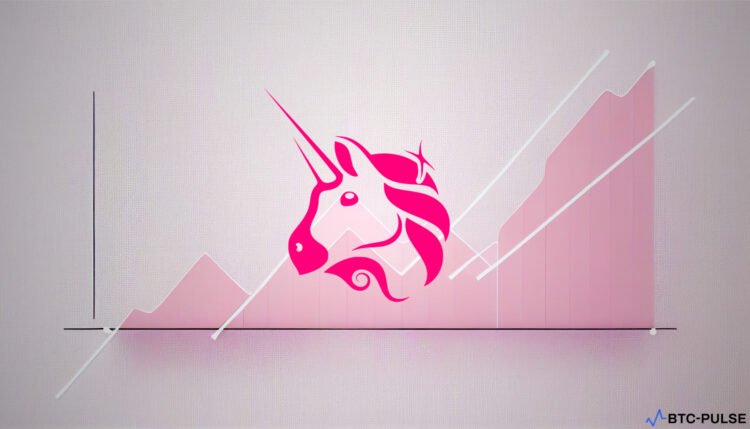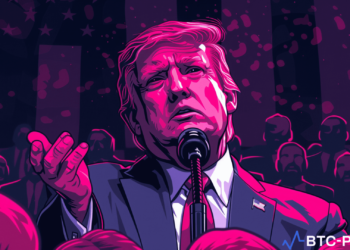Uniswap’s Remarkable Financial Leap
The decentralized cryptocurrency exchange Uniswap has achieved a significant milestone, surpassing the $1 million mark in transaction fees in a single month. This development marks a new era for Uniswap and potentially for the decentralized finance (DeFi) sector as a whole.
According to The Block, Uniswap’s introduction of user interface fees 25 days ago has rapidly accelerated its revenue generation, amassing a total of $1.1 million. This translates to an average daily income of approximately $44,000, which, if maintained, could see annual revenues exceeding $16 million.
A Detailed Analysis of Uniswap’s Revenue
Dune Analytics reports indicate that in the last 24 hours alone, over 16% of all trading transactions on Uniswap were conducted through its user interface. This high percentage of interface-based transactions highlights the platform’s significant role in the cryptocurrency trading community.
Uniswap Fees Introduction: A Shift in Strategy
In a strategic shift, Uniswap began charging a 0.15% fee for swaps on its web app and wallet in mid-October. The platform deducts this fee from the output token amount. Representatives have stated that all proceeds from these fees will be reinvested into the development of future projects and products within the Uniswap ecosystem.
Community Reaction and the Future of Decentralized Finance
The introduction of fees, however, has not been without controversy. In June, 45% of Uniswap community members voted against this new fee structure. Despite this opposition, the platform has proceeded with its implementation, indicating a strong commitment to its long-term growth and sustainability strategies.
Moreover, a recent discovery of a new KYC (Know Your Customer) function in the repository of Uniswap’s fourth version has sparked further debate. Some community members believe this could pave the way for regulators to whitelist decentralized finance protocols, a move that could significantly impact the DeFi landscape.
KYC Integration: Balancing Regulation and Innovation
The integration of KYC measures in Uniswap’s framework signals a potential shift towards greater regulatory compliance in the DeFi sector. This development may bring both challenges and opportunities, as it could lead to increased trust and legitimacy among a broader user base while potentially limiting the decentralized ethos that has been central to the platform’s appeal.
Conclusion
Uniswap’s recent financial success demonstrates the growing acceptance and viability of decentralized financial platforms. While it faces challenges in balancing innovation with regulatory compliance, Uniswap’s milestone in revenue generation is a testament to the platform’s resilience and its pivotal role in shaping the future of decentralized finance.










